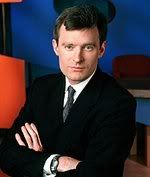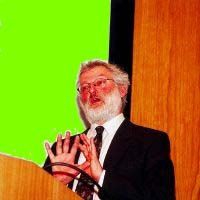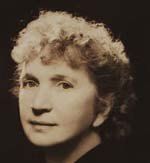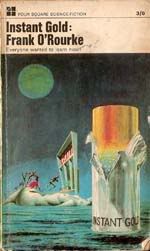 Recently, I got a letter from a friend who lives in a nearby old fen and, like me, used to work with people who use illicit drugs. Inside were two letters from the BBC to him, in response to two letters of complaint he had sent about an objectionable song by The Beastie Boys called She's on it turning up on Dale Winton's show Pick of the Pops, which airs on Sunday afternoons from 2.30-4.30.
Recently, I got a letter from a friend who lives in a nearby old fen and, like me, used to work with people who use illicit drugs. Inside were two letters from the BBC to him, in response to two letters of complaint he had sent about an objectionable song by The Beastie Boys called She's on it turning up on Dale Winton's show Pick of the Pops, which airs on Sunday afternoons from 2.30-4.30.My friend, Iratus, was unhappy with those of the lyrics he managed to make out, and so looked them up on the web. When they did, he found the vocabulary of a situation that unfortunately is not uncommon today: a young lady (in the song a schoolgirl) being given cocaine in return for sexual favours. He wrote to the BBC, complaining that while he realised BBC Radio 2 did broadcast challenging material, this usually happened later in the evening and always with a warning.
Iratus received a prompt reply from the BBC, stating:
We are of course concerned if our programmes offend people and we never set out to offend but of course our public service role includes reflecting the world as it is...When I took the letters to Professor Calculus to look over, upon reading the first he threw back his head and laughed, exclaiming: "They've given him the bug letter!"
I appreciate the strength of your views on these matters. Accordingly, I would like to assure you that I have registered your comments on our audience log. This daily report of audience feedback is circulated to many BBC staff, including members of the BBC Executive Board, channel controllers and other senior managers. The audience logs are seen as important documents that can help shape future decisions about future programming and content. They are also published on the BBC's intranet site, so are available for all BBC staff to view.
Thank you again for your interest in the BBC..."
Seeing my puzzled look, Calculus told me a story about a passenger on a cruise-ship who complained to the owners upon finding a bedbug. He got a reply stating that the member of staff responsible had been sacked and the captain reprimanded and, stuck to it, was his original complaint, with the words written on the back: "Give him the bug letter."
It was an amusing story, and when I investigated further I found that "the [bed]bug letter" had an interesting life as an urban legend. Anyway, Iratus didn't need any pointers to enlighten him to the fact that he was being fobbed off, and therefore iterated his complaint, adding that to give cocaine in return for sexual favours was to commit a criminal act.
This nugget appears to have exercised them down at BBC complaints. Their second reply to Iratus stated:
Having considered your further comments...I raised your concerns with senior management at the Radio 2 network. They acknowledge the record was not appropriate and suitable for this show. They pass on their apologies for any offence and thanks for bringing this matter to their attention.Calculus and I looked at each other significantly like a pair of '70's detectives at this. So much for the "audience log" referred to in the bug letter!
Today, Andrew Porter interviewed Shadow Culture Media and Sports Secretary Jeremy Hunt, who was attending the Conservative Party Conference. Hunt questioned why the BBC should expect to receive a "£3 billion guaranteed cheque" every year and press onwards with a "lack of vision" regarding how it can help people and government tackle the pressing social issues of the day: "the rise in knife crime, gun culture, broken families".
He also referred to the £100 million per year that it takes to run BBC3 for "miniscule audiences". Too right. We bought a Freeview box in not in anticipation of the proposed switch from analogue to digital TV, but because it frustrated me to pay the license fee every
 year for so many services - BBC's 3 and 4, the childrens' channels, the digital radio stations - that I was unable to receive.
year for so many services - BBC's 3 and 4, the childrens' channels, the digital radio stations - that I was unable to receive.One way in which the BBC could help heal our broken society, which was Mr Hunt's main topic, is not to attack the backbone of our Christian society, which is still its religion. I'm thinking mainly of its decision to air Jerry Springer: the Opera in the face of the most complaints it had ever received prior to its being aired (it was already in the public realm as a stage musical).
There was some discussion about the actual number of complaints, but this was put to bed by the BBC Press Office, which reported that it received about 55,000 complaints prior to the show's broadcast and 8,000 complaints afterwards, with about 2,200 messages of support.
 In other words, there were around 30 times more complaints than pats on the back: in spite of this, communications regulator Ofcom found in its meeting on the subject that "The Content Board...suggested that whilst the programme would have offended some people, the requirements of freedom of speech were such that it must be permissible on occasion to cause offence."
In other words, there were around 30 times more complaints than pats on the back: in spite of this, communications regulator Ofcom found in its meeting on the subject that "The Content Board...suggested that whilst the programme would have offended some people, the requirements of freedom of speech were such that it must be permissible on occasion to cause offence."I accept the principle, but it isn't practiced. In autumn 2006, a summit looked at the requests of performer Sacha Baron Cohen, who was invited to throw his pet hates into the bin in the BBC's Room 101. Cohen, a fair man, chose kosher food, the Archbishop of Canterbury, the Bible and the Koran. Almost everybody at the summit, including the show's producer, agreed that all of these items could be binned except the Koran.
Andrew Marr, senior journalist with the Corporation, was admirably honest:
The BBC, in fact, has also been criticised roundly for its anti-American and“The BBC is not impartial or neutral...It’s a publicly funded, urban organization with an abnormally large number of young people, ethnic minorities and gay people. It has a liberal bias not so much a party-political bias. It is better expressed as a cultural liberal bias.”
 anti-Israeli stances from both internal and external sources. William D Rubinstein, formerly of the Social Affairs Unit, asked at the time why no politician was willing to take serious action to tackle the BBC's bias. Perhaps Jeremy Hunt is in the vanguard of politicians who aren't afraid of the big bad Beeb.
anti-Israeli stances from both internal and external sources. William D Rubinstein, formerly of the Social Affairs Unit, asked at the time why no politician was willing to take serious action to tackle the BBC's bias. Perhaps Jeremy Hunt is in the vanguard of politicians who aren't afraid of the big bad Beeb.Anyway, Iratus should be pleased; I don't know how many complainants got past the BBC's bug letter in the battle against Jerry Springer: The Opera, but in his own fight to get the BBC to admit it was wrong he's succeeded where 63,000 failed.

Related posts:
what the hell was all that about?
strictly sociopathic - the bbc has bullied us enough






 ebsite of the Libertarian National Socialist Green Party). We need to be on our guard for these hate-peddlars corrupting the minds of our children by taking advantage of the rebellion-factor that our children may see in the disgust adults feel at their policies. We need to monitor children's and adolescents' TV, music and magazines, because many mainstream media providers, having thrown morality out of the window, increasingly think that causing publicity makes something right.
ebsite of the Libertarian National Socialist Green Party). We need to be on our guard for these hate-peddlars corrupting the minds of our children by taking advantage of the rebellion-factor that our children may see in the disgust adults feel at their policies. We need to monitor children's and adolescents' TV, music and magazines, because many mainstream media providers, having thrown morality out of the window, increasingly think that causing publicity makes something right.




 ou will get steam". His role as RS Director of Education was scheduled for destruction by virtue of his being an ordained priest and nothing else. Dawkins, the Establishment's pet atheist, and the
ou will get steam". His role as RS Director of Education was scheduled for destruction by virtue of his being an ordained priest and nothing else. Dawkins, the Establishment's pet atheist, and the 
 Even though, for example, Cambridge has announced that it three-fifths of its intake will be from state schools this year, those in charge of education are determined to present members of the Russell group as elitist as opposed to élite, a distortion which was a gift to evolutionary biologist
Even though, for example, Cambridge has announced that it three-fifths of its intake will be from state schools this year, those in charge of education are determined to present members of the Russell group as elitist as opposed to élite, a distortion which was a gift to evolutionary biologist 

 se lower legs were amputated as a baby because he was born without fibulas, originally applied to represent South Africa in the Olympics, but the "cheetah blades" he uses to run put him at the unusual disadvantage of being, as the
se lower legs were amputated as a baby because he was born without fibulas, originally applied to represent South Africa in the Olympics, but the "cheetah blades" he uses to run put him at the unusual disadvantage of being, as the  pitcher Tommy John damaged an elbow ligament in his pitching arm, an injury that until then was the death-knell for a professional career. After revolutionary surgery grafting part of the corresponding ligament from the opposite elbow to replace the injured one, he returned to baseball following a long recovery. The operation, now called "Tommy John surgery", is popular now, with pitchers (and also American football players) saying that the best performances in their careers occur
pitcher Tommy John damaged an elbow ligament in his pitching arm, an injury that until then was the death-knell for a professional career. After revolutionary surgery grafting part of the corresponding ligament from the opposite elbow to replace the injured one, he returned to baseball following a long recovery. The operation, now called "Tommy John surgery", is popular now, with pitchers (and also American football players) saying that the best performances in their careers occur 





 have offered an apology to Australian aborigines because, in the Australian edition of
have offered an apology to Australian aborigines because, in the Australian edition of  touch with people from backgrounds liable to economic upset than presidential/vice-presidential candidates have been for some time. It comes as no surprise to me that this should happen in a right-wing party; in the UK, Margaret Thatcher, a shopkeeper's daughter, was the Prime Minister to see through the cant of union bosses grown fat on their members' hardships. Her successor, John Major, was the first Prime Minister ever to call for a classless society. Now that the nominally
touch with people from backgrounds liable to economic upset than presidential/vice-presidential candidates have been for some time. It comes as no surprise to me that this should happen in a right-wing party; in the UK, Margaret Thatcher, a shopkeeper's daughter, was the Prime Minister to see through the cant of union bosses grown fat on their members' hardships. Her successor, John Major, was the first Prime Minister ever to call for a classless society. Now that the nominally 
 On those occasions when I leave the draughty old fen to visit Cambridge, I like to go to the market. Having been a drugs worker, I have to bite my tongue when passing paraphernalia for using cannabis, in order to get to the really important bits: the book stalls.
On those occasions when I leave the draughty old fen to visit Cambridge, I like to go to the market. Having been a drugs worker, I have to bite my tongue when passing paraphernalia for using cannabis, in order to get to the really important bits: the book stalls.










